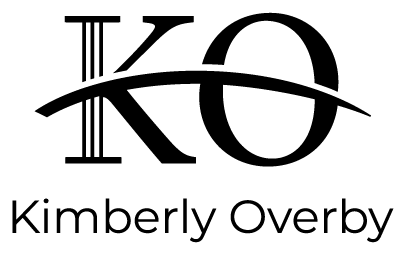
Earn Tax-Advantaged Supplemental Income Without Lifting a Finger
It’s no secret that a successful legal career doesn’t necessarily equal a predictable paycheck. Case volume ebbs and flows, offering little certainty. Plaintiff attorneys with an eye on the future are wise to explore investment options that deliver regular income with minimal effort. Fortunately, solutions exist that fit the bill without taking time away from your practice.
Attorney Fee Deferrals: Your Financial Weapon of Choice
Plaintiff attorneys have a leg up on their defense counterparts when it comes to investment options. Fee deferrals allow placement of an attorney’s contingency fees in a financial vehicle that spreads payments out over time. Payment streams can begin immediately or in the future (depending on the product), allowing you to create a predictable source of income to supplement your current cash flow or to support future expenses, such as college tuition or retirement. If you have an existing deferred comp plan, attorney fee deferrals are an excellent funding tool.
You may find additional benefits when it comes time to file your taxes:
- Since payments will be spread out over time, you may be able to remain in your current tax bracket, rather than moving up to the next bracket. Less taxes = more fees in your pocket.
- By deferring your payments as a part of your retirement nest egg, you may be able to take advantage of a lower effective tax rate in retirement.
- Your CPA can help you to determine if deferred fees will help reduce your AMT liability.
Fixed Annuities
For several years, structured attorney fees using fixed annuities have been the deferral investment of choice. The plan design is flexible and there is no income cap, nor any annual or lifetime contribution limits. With no overhead or management fees, the guaranteed1 rate of return is comparable with many traditional investments. Payments are fixed and guaranteed, allowing you to set this stream of income on autopilot and pay taxes only on the income received within each tax year.
Fee Structure Plus®
Attorneys seeking additional growth potential may want to explore Fee Structure Plus® (FSP) as an alternative. FSP uses a low-cost platform to invest your fees in market-based portfolios. In addition to providing many of the same benefits as fixed annuities, FSP accounts can be managed by your financial advisor as a part of your comprehensive financial portfolio. You can defer unlimited amounts of contingency fee income, with taxes payable only in the years in which you receive your FSP payments.
Alternative Options for Attorney Fee Deferrals
In addition to fixed annuities and Fee Structure Plus®, there are other attractive options that employ a variety of underlying investments including Vanguard Funds, U.S. Treasury Bonds, and fixed indexed annuities. The varied investments offer a broad range of solutions to diversify your portfolio and maximize your wealth management and tax planning efforts.
Contact Sage Settlement Consulting Today
Deferred fees provide you with a stress-free source of long-term, tax-advantaged income. To learn more, contact Kimberly Overby today.

Securing a Child’s Financial Future
When a child is traumatically injured in an accident or is the recipient of a financial windfall resulting from a settlement involving a parent, the unknowns of the child’s financial future can compound an already emotional transition. Fortunately, there are settlement solutions available to help ensure that the child’s financial future is protected.
Implications of Settling with Cash
There are many reasons why accepting a lump sum cash settlement is not in the best interest of a minor child (and in fact, some states will not allow cash settlements for minors):
Fast Depletion of Funds: An injury settlement is often the largest sum of cash a family has ever handled at one time. Compounding medical bills, education expenses, lending money to friends and family, and emotional spending are all common pitfalls that can quickly eat up settlement proceeds, especially if the family is inexperienced at managing large amounts of cash.
Ineligibility for College Financial Aid: A lump sum cash settlement could render the child ineligible for financial aid. Even if the family intends to use the money to cover the costs of caring for the injured child, college financial aid offices typically consider those funds when offering financial assistance.
Loss of Government Benefits Eligibility: Most states use income and asset tests in determining one’s eligibility for needs-based government benefits (e.g., SSI, Medicaid, CHIP, etc.). If the child or the child’s parents accept a lump-sum cash settlement, the family will almost certainly lose access to important needs-based benefits.
A Better Approach: Proactive Planning
There are a few different options for handling a minor’s settlement that will help avoid many of the negative consequences associated with a lump sum cash payment:
Option 1: Defer Payment Until After College
With private college tuition averaging over $30,000 a year before room and board, a four-year degree can easily top out at over $100,000. By placing settlement proceeds in a structured settlement and arranging to have the first payment deferred until after college, the child may be able to obtain eligibility for financial aid assistance. The deferred payments will be valuable to a young adult regardless of his/her chosen personal or professional path.
Option 2: Utilize a Minor’s Trust
Minors with more extensive medical needs may benefit from a minor’s trust. There are state-specific (and in many jurisdictions, county-specific) guidelines that must be followed to gain court approval. A minor’s trust is managed by a trustee, who is often a close loved one (i.e., a parent, grandparent, or guardian), but in some cases, could be a court-mandated professional or bonded trustee.
If funds for the minor child are not needed immediately, the trust does not necessarily need to distribute payments during the minor’s youth; instead, the trust can be set up to begin distributing funds when the minor reaches the age of majority in his/her state. To determine the most appropriate approach, families will want to consider medical needs, anticipated financial needs (whether there will be a loss of earnings or a large future purchase), and the minor’s ability to handle funds at the age of majority. Structured settlement annuities can be used to fund a minor’s trust, providing an added layer of protection while also maximizing the proceeds. When selecting this option, consideration must be made for the amount of funds going into the trust vs. the bonding and court fees for the time the trust is in existence.
Additional Options for Minors
Depending on the jurisdiction and the discretion of the judge, options for settlement may also include a guardianship account or a court registry account. In an effort to maximize and preserve the settlement proceeds, families are encouraged to explore the possibility of a structured settlement annuity or a combination of a structured settlement and a minor’s trust.
For more information regarding your next case involving a minor, contact Kimberly Overby at Sage Settlement Consulting today. Our experienced settlement consultants will help create a stable financial future for your minor clients.







